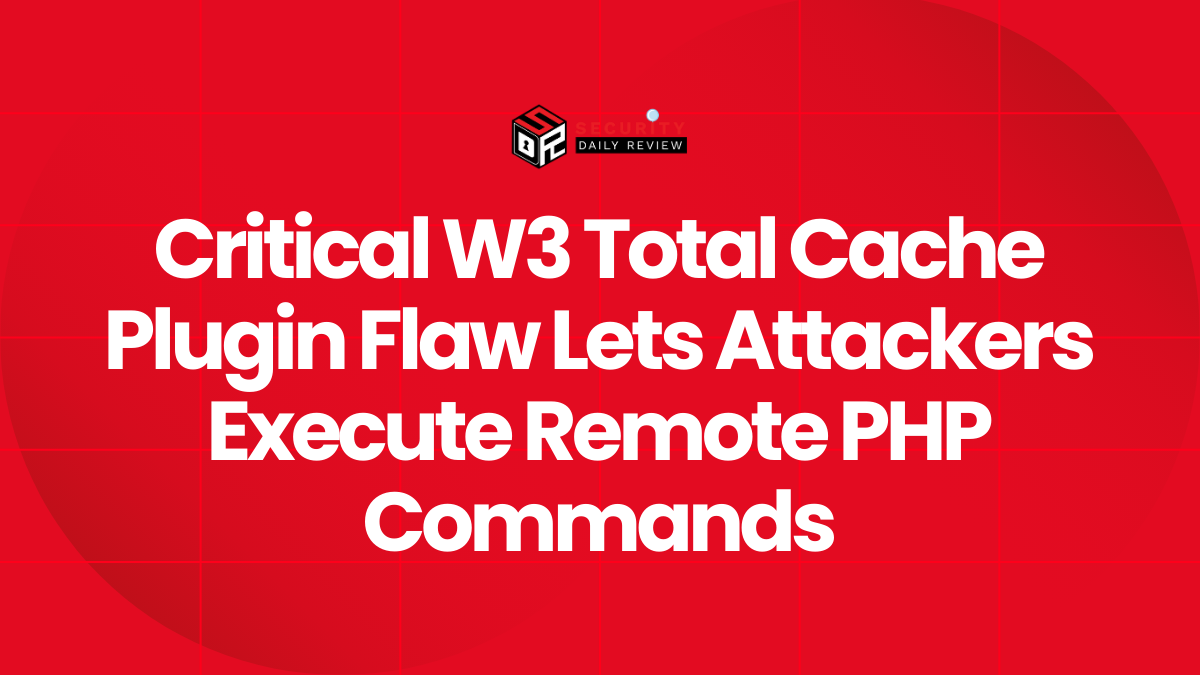A recently identified security flaw in one of WordPress’s most popular caching plugins, W3 Total Cache (W3TC), poses a significant threat to website administrators. The vulnerability enables unauthenticated attackers to execute arbitrary PHP code on WordPress servers by posting comments containing specially crafted payloads. With over a million active installations, the plugin’s wide usage amplifies the risk of exploitation.
Plugin Vulnerability Enables Remote Code Execution
Security researchers have flagged a flaw that could let attackers run arbitrary code via comment fields.
The vulnerability resides in how W3 Total Cache handles comment fields in the WordPress content management system (CMS). Malicious actors can exploit this flaw by injecting a specially crafted payload into a comment, which the plugin processes in a way that permits server-side PHP execution.
Discovered by NinTechNet, a French security firm, and later disclosed by the WordPress plugin security team, the flaw occurs during the caching and deserialization of user input. Under specific configurations and default settings, user input—expected to be inert—can be converted into active code by the plugin’s mismanagement of serialized PHP data.
How the Exploit Works and What It Can Do
The vulnerability can be triggered using a comment field, leading to full server compromise.
The root of the issue lies in the improper handling of object injection during comment caching:
- Attackers submit a comment using a malicious PHP payload.
- W3 Total Cache caches that comment and deserializes malicious input.
- Upon deserialization, the injected PHP code is executed on the server.
Because WordPress exposes the comment field to unauthenticated users by default, the attack vector does not require any login credentials or prior access—making it ideal for automated mass scanning and exploitation.
Security researchers emphasize that this exploit can lead to remote code execution (RCE), giving malicious actors the ability to install backdoors, exfiltrate sensitive information, or deploy malware such as web skimmers and ransomware payloads.
Patch and Mitigation Guidance for WordPress Admins
Update the plugin immediately and verify caching configurations to avoid compromise.
WordPress site administrators running W3 Total Cache should take immediate remediative action:
- Update to W3 Total Cache version 2.5.2 or higher, where the vulnerability has been patched.
- Disable caching for comment feeds and user-submitted content during the update process.
- Monitor server logs for suspicious comment activity or anomalies in cache behavior.
- If practical, disable the comment functionality until the patch is applied and tested.
It is also advisable to apply a Web Application Firewall (WAF) to intercept malicious comment payloads and apply least privilege principles for server permissions. W3 Total Cache stores cache files on disk, and improper file permissions may further deepen the impact of a successful exploit.
Threat Landscape and Target Likelihood
High-volume WordPress sites with default comment settings are especially vulnerable.
Due to W3 Total Cache’s wide deployment, attackers are likely to target this vulnerability using automated tools to scan for susceptible endpoints. Threat actors could, in theory, execute the exploit en masse, particularly against high-traffic WordPress sites to maximize impact. WordPress websites that allow anonymous commenting and use default plugin configurations are at higher risk.
“The vulnerability allows attackers to exploit a common channel—public comments—for command injection, which makes it both scalable and stealthy,” said experts analyzing the flaw’s impact.
Administrators should assess not only their plugin version but also plugin configurations to ensure security boundaries are in place beyond just patching. This serves as a reminder that even high-rated plugins can carry risks when user input is not adequately sanitized or when safe deserialization practices are lacking.
Robust Input Handling is Critical in Plugin Ecosystems
Persistent caching of user input without input validation can lead to significant risk exposure.
This W3 Total Cache vulnerability underscores a recurring issue in the WordPress ecosystem: third-party plugins often handle complex processes like caching or deserialization in ways that are difficult to secure. Improper handling of serialized data, especially when user-provided, is a frequent source of critical remote code execution vulnerabilities.
As plugin complexity increases, developers must ensure they adopt secure coding practices and conduct proper security reviews during development. Website owners, meanwhile, must ensure they continuously update their plugin libraries and harden configurations.
Failure to address such vulnerabilities could make even well-protected servers vulnerable—not because of the core WordPress software—but due to insecure plugin behavior.









